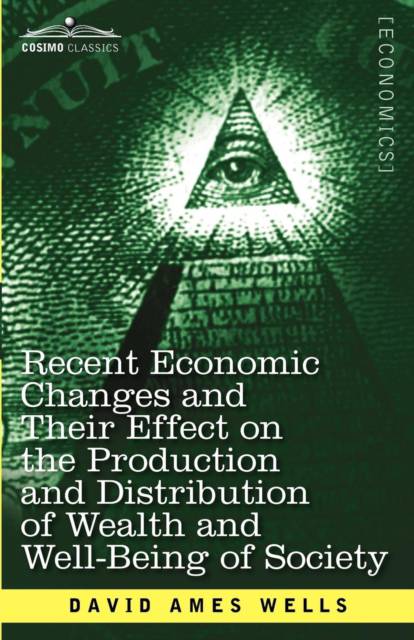
- Afhalen na 1 uur in een winkel met voorraad
- Gratis thuislevering in België vanaf € 30
- Ruim aanbod met 7 miljoen producten
- Afhalen na 1 uur in een winkel met voorraad
- Gratis thuislevering in België vanaf € 30
- Ruim aanbod met 7 miljoen producten
Zoeken
Recent Economic Changes and Their Effect on the Production and Distribution of Wealth and Well-Being of Society
David Ames Wells
Paperback | Engels
€ 36,95
+ 73 punten
Omschrijving
In this book, David A. Wells recounts the changes in economic policy that took place over twenty-five years, from 1860-1885. He details the significant events that effected the shift in economic policy in the wake of the Industrial Revolution, and identifies the benefits and consequences of the new and expanding technology that allows the world to work in a faster, ever shrinking environment. DAVID AMES WELLS(1828-1898) was an American inventor, lecturer, and economist. He served as an economic and financial advisor to several presidents, and was influential in abolishing many pre-existing tariffs of the time. An authority on the subject of political economy, Wells wrote several titles including Robinson Crusoe's Money (1876), The Relation of the Government to the Telegraph (1873), The Silver Question (1877), Why We Trade and How We Trade (1878), A Primer of Tariff Reform (1884), Practical Economics (1885), Recent Economic Changes (1889), Breakers Ahead: Cause of the Present Crisis (1896), and The Theory and Practice of Taxation (1900).
Specificaties
Betrokkenen
- Auteur(s):
- Uitgeverij:
Inhoud
- Aantal bladzijden:
- 510
- Taal:
- Engels
Eigenschappen
- Productcode (EAN):
- 9781616407483
- Verschijningsdatum:
- 3/12/2012
- Uitvoering:
- Paperback
- Formaat:
- Trade paperback (VS)
- Afmetingen:
- 140 mm x 216 mm
- Gewicht:
- 639 g

Alleen bij Standaard Boekhandel
+ 73 punten op je klantenkaart van Standaard Boekhandel
Beoordelingen
We publiceren alleen reviews die voldoen aan de voorwaarden voor reviews. Bekijk onze voorwaarden voor reviews.








